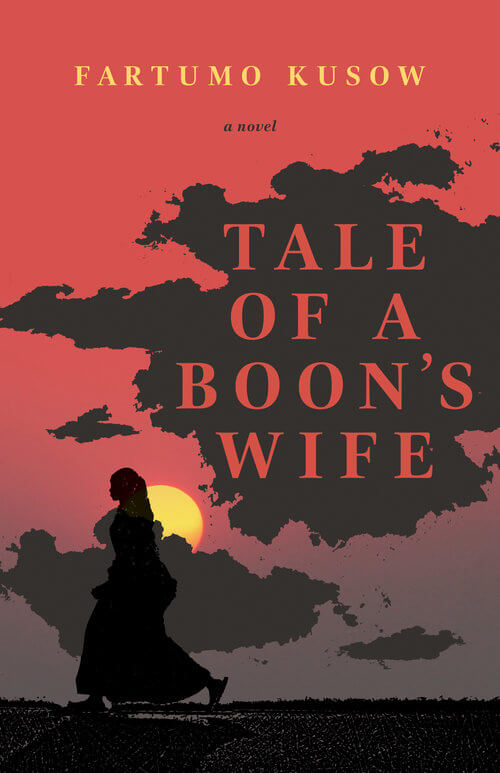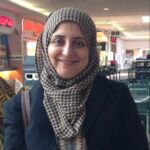Canadian literature continues to diversify as more stories look to include a wider range of content set locally and abroad. Language barriers, migration trauma, cultural discrepancies and family responsibilities; women authors of diaspora are defying the odds, breaking through different obstacles to have their voices heard.
Ayelet Tsabari and Fartumo Kusow are two examples of determined women whose journeys outline what so many must overcome to become Canadian authors.
Breaking through Language Barriers
Ayelet Tsabari, who is from Israel, worked as a Hebrew journalist until she came to Canada at the age of 25. Writing, she believes, completes her. But in what was once a strong suit, language now became a challenge, pushing Tsabari to stop writing altogether. She could speak and read English, however it took her about eight years to gain the confidence to start writing.
Tsabari’s development started with her enrollment in a writing program, which she coupled with Canadian content she would read. As time passed, English began to flow into her work more naturally.
“I realized that it’s not just language but it’s your heritage and even your mother tongue are still in you when you are writing in a new language.” -Ayelet Tsabari
Tapping into her long lost passion, she began to create original pieces in the hopes of being published. But, to no avail as her lack of success prompted one of her teachers to suggest she read books other than Canadian literature.
“I realized that it’s not just language but it’s your heritage and even your mother tongue are still in you when you are writing in a new language. So certain things didn’t work for the publishers,” Tsabari explains.
Getting Published
Tsabari broadened her scope and soon she was reading literature from an array of multicultural writers. This broke the prison that had withheld her imagination, allowing her to finally express her voice.
“I just thought that if I started writing with that in my mind, just be you and do what you are and that’s what ended up getting me published,” she says.
Her dream came to fruition when her first book, “The Best Place on Earth“, was published in 2013. The collection of short stories challenges the connection of spiritual heritage with modern life. Met with good reviews, it went on to win several distinctions, including the Sami Rohr Prize for Jewish Literature and the New York Times Book Review Editor’s Choice. Feeding off her first book’s momentum, she is now working on her second. In addition, she is also currently working with immigrant writers at the Toronto Public Library to improve their writing skills.
Unlikely Beginnings
Fartumo Kusow was born to a farmer’s family in Somalia, as the seventh child. From a young age, she had difficulties establishing social connections with her peers and preferred to write instead.
“Instead of socializing with them I always had a notebook in my hand, that my father gave me and I would write in the notebook,” Kusow recalls.
As per Somali tradition, she married young, becoming a wife at the age of 16. Subsequently, this was also the same year her first fictional story was published in the national newspaper, where she worked.
Her husband had a job in the Middle East, which kept them financially stable. But when the civil war started in 1990, she was forced to leave. Already pregnant with her third child, she immigrated to Canada with her then-husband and two children.
Holding onto her dreams, Kusow knew that she wanted to become an author.
Unfortunately, Somali is her first language, Arabic her second. And due to war, she had little to no transcripts that could prove her credentials. However, she didn’t give up, completing her Bachelor’s in English before going on to a teaching program in Windsor. She has now been teaching since 2000.
 Despite her successes, war trauma combined with move factors led to a failed marriage. She was left with no choice but to put her dream on hold as she filled the role of breadwinner for herself and her five children.
Despite her successes, war trauma combined with move factors led to a failed marriage. She was left with no choice but to put her dream on hold as she filled the role of breadwinner for herself and her five children.
As she supported the household, her inner writer continued to itch at her until she resumed writing in 2011.
“When the kids are bit older and my career and my profession is [a] little more stable, I decided to spend an hour a day just to write something,” states Kusow.
Perseverance trumps Rejection
Nothing could stop her, not even the 104 rejections could dare be a hurdle to her dream. Though she finished her fictional piece in about three years, it did not garner much publisher interest. Sleepless nights turned into frustration as she pondered the reasoning behind her struggles. Until she came to the realization that the rejections were not personal but rather that publishing was simply a business.
With this in mind, she persevered, eventually getting published in 2017, when she produced “Tale of a Boon’s Wife“.
Reviews speak to Kusow’s ability to clearly depict the issues stemming from the traditional Somali caste system, while simultaneously detailing the sufferings of the country’s civil war.
Kusow’s children are very proud of her and look up to her as a stronghold of leadership.
Though it has not been long since Canadian literature has started promoting more diverse content, its clear the industry is moving in the right direction. Several initiatives such as the Festival of Literary Diversity (FOLD) constantly take steps to ensure progress continues.
While both Tsabari and Fartamo are giving back to the community in the form of teaching, it is important to provide aspiring writers with the opportunities to develop their skills. Through mentorships and training the next generation of writers will make an even bigger impact on Canada’s literary landscape.
This piece is part of the “Ethnic Women as Active Participants in Ontario” series.
Tazeen is based in Mississauga and is a reporter with the New Canadian Media. Back in Pakistan where she comes from, she was a senior producer and editorial head in reputable news channels. She holds a master’s degree in Media and Communication and a certificate in TV program production from Radio Netherlands Training Center. She is also the recipient of NCM's Top Story of 2022 award for her story a "A victim of torture, blogger continues fight for human rights in Pakistan"





